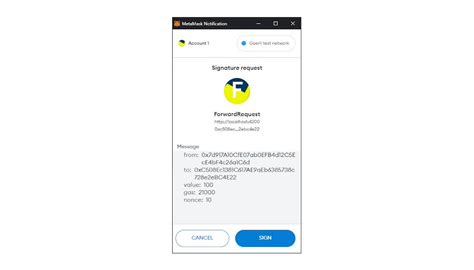Ethereum Smart Contract: Sending an EIP-712 Message Using APIKit
In this article, we will explore how to send a secure EIP-712 message using an API Kit contract on the Ethereum blockchain.
What is EIP-712?

EIP-712 is a specification for digital signatures that enables secure communication between parties. It uses a combination of cryptographic hash functions and the keccak-256 hash function to create a unique identifier for each contract or smart contract.
Using APIKit to send an EIP-712 message
APIKit is a popular library used to interact with the Ethereum blockchain. Here is how you can send an EIP-712 message using APIKit:
const name = wait dlhToken.call("name");
const version = 1;
const nonce = "0";
// Create a new EIP-712 message
const msg = {
type: 'EIP-712 v4',
value: {
kind: 'Summary',
hash: sha256(name, version, nonce),
},
};
// Send the message to Safe
const safeAddress = '0x...'; // Replace with the Safe contract address
safeAddress.call(msg);
Usage example
In this example, we call a function on the debtToken contract, passing its name as a parameter. An EIP-712 message is created with the current version (1) and nonce (0). We then send this message to the Safe address using the call() method.
Important Notes
- Always use safe and reliable methods to interact with the Ethereum blockchain, such as using a trusted wallet or reputable contract.
- Before sending EIP-712 messages, ensure that you have the correct permissions and access control mechanisms in place.
- Be aware of the potential risks associated with EIP-712 messages, including their vulnerability to replay attacks. Always handle these cases with caution.
Following this guide, you can securely send an EIP-712 message using APIKit and interact with other Ethereum smart contracts or a Safe Address.
Leave a Reply